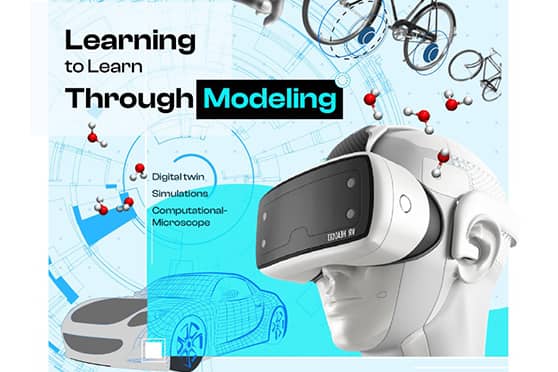IIT Delhi is holding the second SciTech Spins online lecture for school students; invites schools to nominate students


Springs and molecules — what do they have in common? How can we use computers as a microscope? Can computers beat the human brain?
These and many such questions will be answered by the Indian Institute of Technology (IIT), Delhi, professors during the second lecture and interaction session that the institute’s academic outreach initiative, SciTech Spins, is organising for school students on October 23.
Divya Nayar from the department of Materials Science and Engineering and N.M. Anoop Krishnan from the department of Civil Engineering and School of Artificial Intelligence, IIT Delhi, will deliver the lecture ‘Learning to Learn Through Modeling’, which will be streamed live on IIT Delhi’s YouTube channel (https://youtu.be/6mR-iTueZ2A).
“Often, it is difficult to perform experiments under certain extreme conditions, such as for studying processes occurring in deep sea, at high altitudes or at high temperatures. Sometimes there is a need to substantiate and understand the experimental findings, for instance, why does oil never mix with water, but common salt does?” Nayar said.
“Sometimes new predictions are necessary for designing experiments. A computer can act as an effective tool in understanding ideas without actually performing experiments. The lecture will discuss how one can model, simulate and predict real-life phenomena by making use of powerful computers,” Nayar said.
IIT Delhi will give e-certificates to all registered students attending SciTech Spins and invite them for Open House, an annual intellectual fest that provides an ideal platform for school students to connect with some of the leading researchers in the field of Science and Technology.
Schools wishing to nominate their students for SciTech Spins may reach out to the institute through Associate Dean, Academic Outreach & New Initiatives, IIT Delhi, at adoni@iitd.ac.in or acadoutreach@iitd.ac.in
The first lecture under the SciTech Spins initiative was organised on September 11, 2021. The lecture ‘Design Thinking - A Powerful Tool for Problem Solving’ received an overwhelming response from school students from across the country.